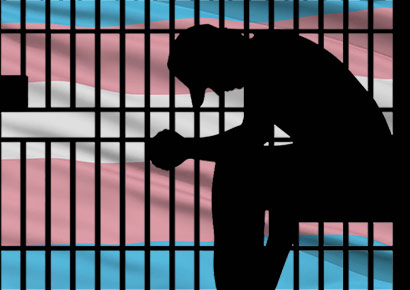Transgender prisoner takes Correctional Services to Equality Court
 A transgender prisoner is suing the Minister of Justice and Correctional Services for her right to simply be herself while in prison.
A transgender prisoner is suing the Minister of Justice and Correctional Services for her right to simply be herself while in prison.
Jade September, 36, says that the prison system has singled her out and harassed and unfairly discriminated against her for expressing her gender identity, contrary to the Promotion of Equality and Unfair Discrimination Act 4 of 2000.
September is being represented by Lawyers for Human Rights (LHR) in the matter, which goes to the Cape High Court, sitting as an Equality Court, on 26 November. September is currently serving a 15 year prison sentence for murder at the Malmesbury Correctional Centre for men.
As is often the case for transgender people in South Africa, she never had an opportunity to change the gender marker in her ID, nor has she ever had access to gender-affirming health care. For these reasons, she is incarcerated as a man.
According to September, prison officials have denied her the right to express her gender through her hairstyle, dress, and use of small amounts of make-up. She has also allegedly been subjected to verbal abuse and harassment from officials, and at one stage was placed in segregated confinement after trying to express her gender.
Officials are further been accused of arbitrarily confiscating her personal items and forcing her to cut off her braided hair, which is a marker of her feminine identity. LHR said that this treatment, in more than one prison facility, has traumatised September, and caused considerable damage to her mental health, resulting in a suicide attempt in December 2017.
Transgender prisoners are excluded
September is not asking to be transferred to a women’s prison but wants to be allowed to express her gender identity where she is currently being held.
“The truth is, because Ms September has never had access to gender affirming health care, she is likely to stand out even more, and be at greater risk of victimization and violence in a woman’s prison,” commented Sanja Bornman of the LHR Gender Equality Programme. “For this reason, it is the duty of state to accommodate her where she currently is, in accordance with the principle of substantive equality – that is, equality in outcomes.”
Bornman added: “There are no separate prisons for transgender or gender non-conforming people. In fact, as far as prison laws and policies are concerned, transgender people simply do not exist. This is unacceptable.”
The respondents in the matter, consisting of various prison heads and the Department of Justice and Correctional Services, claim that they have forced September to conform to a male identity for her own safety.
However, they have failed to submit evidence to show that Ms September’s expression of her gender identity, specifically, puts her at any more risk than any other inmate in prison.
Demeaned and deprived of identity
“This matter ultimately turns on the right of all people to be afforded equality and dignity while in the care of the state – even when that state care is the prison system,” explained Bornman.
“Unlawful discrimination, especially by state employees, is not part of anyone’s prison sentence, and no one should be punished by the state for their gender identity, sexual orientation, religious belief, or any other immutable characteristic. It is also time for the state to realise that none of its systems and services may exclude or discriminate against transgender and gender non-conforming people any longer,” said Bornman.
September is seeking relief from the court for the violation of her fundamental constitutional rights to equality and human dignity, including an order that she be permitted to express her gender, and that she be respected in her gender identity while incarcerated.
She has stated in her papers: “[the treatment by the prison officials] caused me to feel extremely demeaned and deprived of my identity… My gender expression is something that I have had to constantly struggle to achieve and maintain throughout my life… it is the only way I can express a vitally important component of my identity, which is my gender… This is needless to say a vitally important aspect of my identity. It goes to the core, and is the essence of who I consider myself to be as a human being.”
Leave a Reply